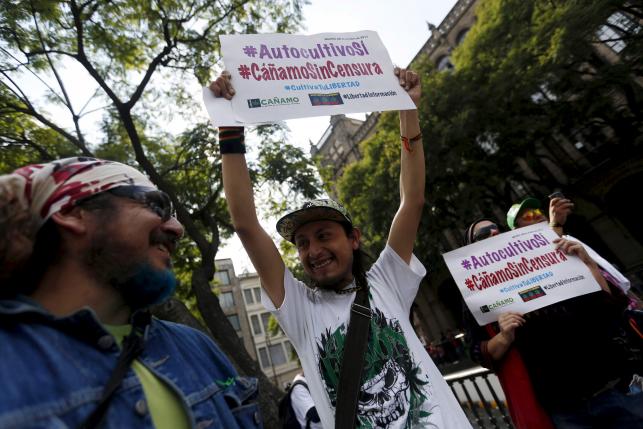By David Nathan and Paul Armentano
Having spent many years working on marijuana policy, we’ve had ringside seats to the dramatic evolution of public opinion about cannabis legalization.
Today, 33 states have laws on the books regulating the production and dispensing of medical cannabis to qualified patients, while eleven states – encompassing one-quarter of the U.S. population – now regulate its non-medical use by adults. And more than two-thirds of Americans – including a majority of Democrats, Independents, and Republicans – favor making marijuana legal for those age 21 or older.
This sea change in public opinion reflects the reality that state-level legalization policies have conformed well with voters’ expectations and attitudes. According to available polls, voters residing in jurisdictions where cannabis is legal consistently report that legalization has been a “success” in their state, and that the regulated marijuana market is preferable to criminalization. In many of the states that initially legalized cannabis for medical purposes only, the electorate later voted in favor of expanding these regulatory schemes to include all adult use. Tellingly, not a single state that legalized cannabis for either therapeutic or personal use has ever repealed their law.
On Election Day, Garden State voters have the opportunity to make New Jersey the twelfth state to legalize, regulate, and tax the commercial marijuana market. It is critical that New Jerseyans vote YES on Question 1 in the interest of justice, public health, and fiscal responsibility.
Passage of Question 1 is necessary to halt the skyrocketing number of marijuana-related arrests that are occurring in the Garden State. Annually, more than 30,000 New Jerseyans are arrested for cannabis-specific violations – one of the highest totals of any state in the nation. These arrests and prosecutions cost taxpayers an estimated $143 million every year.
The overwhelming majority of these arrests are for low-level possession – not marijuana trafficking or sales – and a disproportionate percentage of those arrested are people of color. Those convicted of possessing even small amounts of marijuana are subject to the possibility of up to six months in jail. The record of their conviction also remains available to anyone performing a criminal background check. This denies tens of thousands of New Jerseyans – disproportionately from communities of color – opportunities for professional advancement.https://tpc.googlesyndication.com/safeframe/1-0-37/html/container.html
Passage of Question 1 is also needed to bring about long-overdue regulation of the cannabis marketplace. Let’s be clear: Legalization does not create the marijuana market; this market already exists. But only with legalization can regulators impose common-sense controls on cultivation, processing, distribution, and sales of cannabis.
Only through legalization can our state establish standards for product testing, labeling, potency, purity, and packaging. Only legal retailers are monitored to ensure that they check IDs and prevent sales to minors. And only via legalization can state and local governments tax commercial and retail cannabis transactions and reinvest these dollars back into New Jersey’s communities.
By contrast, a ‘no’ vote on Question 1 would leave New Jersey’s thriving cannabis industry in the hands of unregulated, untaxed growers and dealers who do not hesitate to sell cannabis to New Jersey’s children and adolescents.
If we’ve learned just one lesson from the decades-long failure of prohibition, it is that cannabis is here to stay. The question is this: What do we want this marketplace to look like, and who do we want overseeing it? A YES vote on Question 1 is a vote in favor of stopping tens of thousands of low-level marijuana arrests, regulating the commercial cannabis market, and driving necessary tax revenue to underserved communities.
Since the cannabis ballot question will likely appear on the back of your mail-in ballot, we ask you to turn the page on marijuana prohibition. If you want to bring order, public safety, and equity to the cannabis industry in New Jersey, please vote YES on Question 1.
David L. Nathan, MD, DFAPA is a Princeton-based psychiatrist, writer, speaker, educator, and consultant. He is the founder and board president of Doctors for Cannabis Regulation, a steering committee member of New Jersey United for Cannabis Reform and NJ CAN 2020, and a Clinical Associate Professor of Psychiatry at Rutgers Robert Wood Johnson Medical School.
Paul Armentano is the deputy director of NORML — the National Organization for the Reform of Marijuana Laws — in Washington, DC. He also serves as the chair of Science on the faculty of Oaksterdam University in Oakland, California.
Source: https://www.nj.com/


